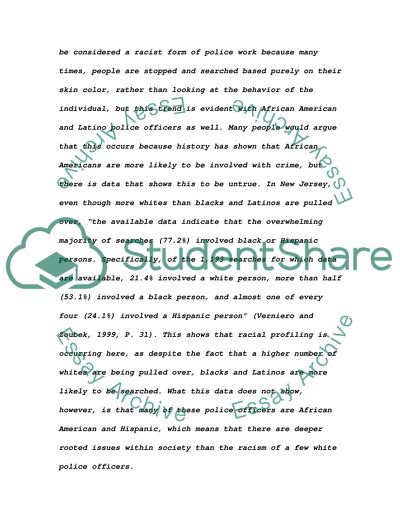Cite this document
(Racial Profiling in the USA Essay Example | Topics and Well Written Essays - 1750 words, n.d.)
Racial Profiling in the USA Essay Example | Topics and Well Written Essays - 1750 words. https://studentshare.org/social-science/1713321-minorities-committing-crime-and-minorities-fighting-crime
Racial Profiling in the USA Essay Example | Topics and Well Written Essays - 1750 words. https://studentshare.org/social-science/1713321-minorities-committing-crime-and-minorities-fighting-crime
(Racial Profiling in the USA Essay Example | Topics and Well Written Essays - 1750 Words)
Racial Profiling in the USA Essay Example | Topics and Well Written Essays - 1750 Words. https://studentshare.org/social-science/1713321-minorities-committing-crime-and-minorities-fighting-crime.
Racial Profiling in the USA Essay Example | Topics and Well Written Essays - 1750 Words. https://studentshare.org/social-science/1713321-minorities-committing-crime-and-minorities-fighting-crime.
“Racial Profiling in the USA Essay Example | Topics and Well Written Essays - 1750 Words”. https://studentshare.org/social-science/1713321-minorities-committing-crime-and-minorities-fighting-crime.


